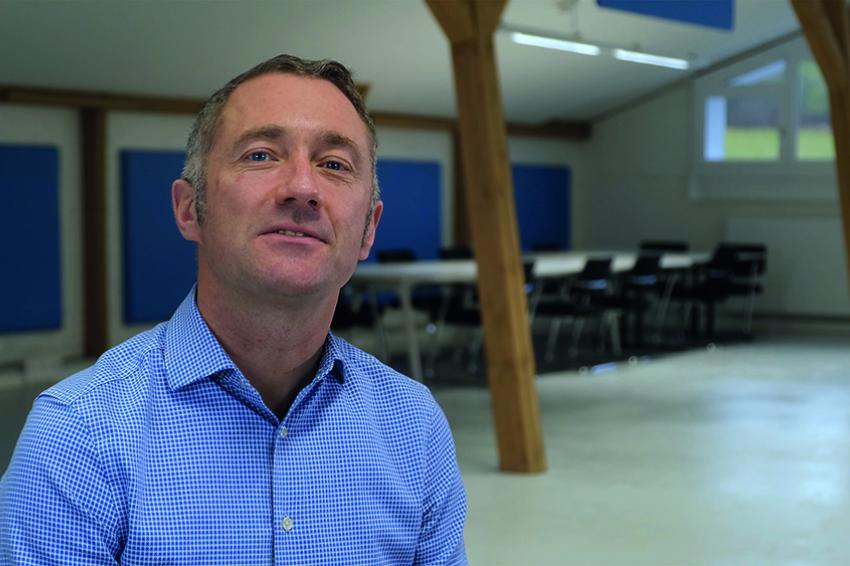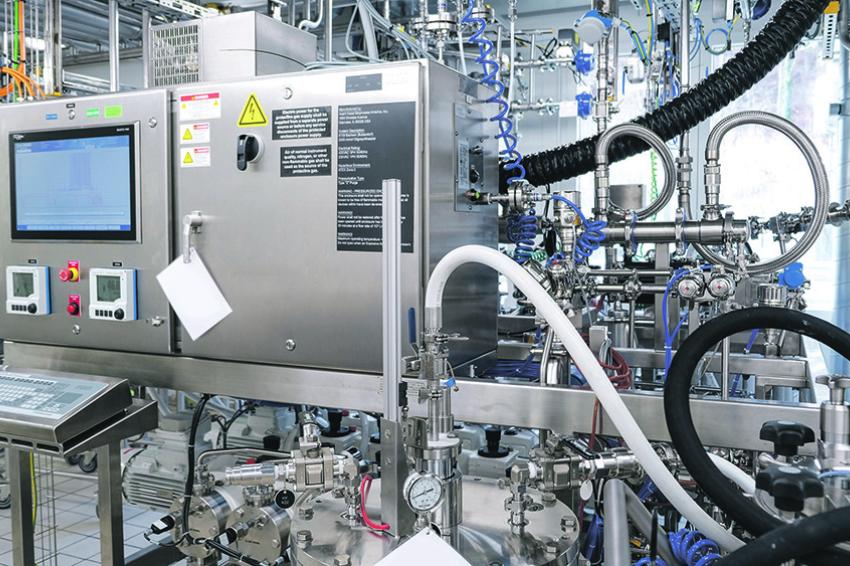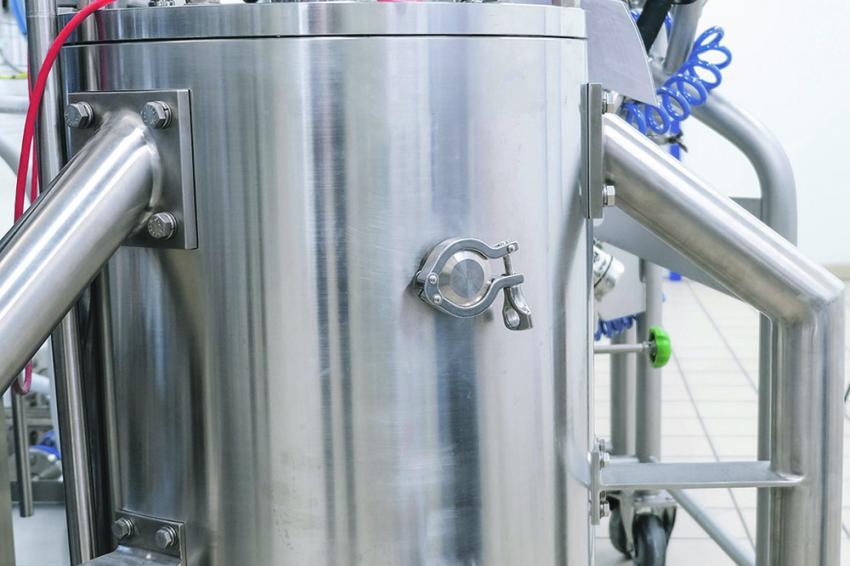Expanding Into Oligonucleotides
Bachem Invests, Leverages Expertise and Equipment to Support the Development of Novel APIs
Extending its focus from peptides to oligonucleotides will also lead to a transformation of Bachem’s organization. Seamus White, business development manager at Bachem, provides an update on the company‘s strategy and progress in the field of oligonucleotide manufacturing.
CHEManager: Bachem’s journey into oligonucleotides initially started in 2018. What led to the decision to enter this field?
Seamus White: The potential of oligonucleotide-based medicines is finally receiving the focus it deserves. Rare diseases, especially, are benefiting from these molecules. This demand will get even greater as oligonucleotide therapeutics move more into chronic diseases, too. However, there are significant unmet needs in the field —revolving around capacity, cost-effectiveness, and sustainability. Thus, we saw an opportunity to expand Bachem’s customer base by leveraging existing expertise and equipment and to ultimately support the development of novel active pharmaceutical ingredients.
As the leading company in developing and manufacturing peptides and oligonucleotides and an API manufacturer, we are offering the best solutions for today and are developing tomorrow’s innovations. We work with passion and dedication to support our customers in achieving breakthrough medical advances that will significantly transform patients’ lives, and we will address larger-scale patient populations and indications by transforming the processes of how oligonucleotide therapeutics are supplied.
What are Bachem’s achievements in oligonucleotides so far?
S. White: We started by purchasing and installing off-the-shelf synthesizer and invested considerable resources in the design of a custom-built cleavage and deprotection system. This set-up is used for complex siRNAs synthesis in multi-hundred-gram quantities. A first GMP batch for clinical investigations was released in 2019.
In 2021, we completed the qualification of the pilot plant dedicated to the downstream processing of oligonucleotides. This will allow us to efficiently process material under GMP conditions in the single-digit-kg range. Recently, we completed the installation of our first large-scale equipment train for oligonucleotides. The line has been designed for the processing of multi-kg batches, and we have already started using it in collaborations with some pharma and biotech companies.
“The potential of oligonucleotide-based medicines is finally receiving the focus it deserves.”
What differentiates Bachem from other CMOs in the oligonucleotide market?
S. White: With 50 years’ experience in the development and manufacturing of innovative medications, with customer-centric excellence, we have proven to be a trusted and reliable partner for pharmaceutical and biotech companies. With our tailored approach, we are committed to serving customer’s needs and ultimately always have patients in mind. Because of this, we keep innovating and developing new technologies! We want to transform the oligo field by bringing solutions to our partners for scalability, cost-effectiveness and sustainability. We will bring innovation to every piece of equipment and processes — from solid-phase synthesis to downstream processes.
Can you share some information on process innovations used for your oligonucleotide manufacturing?
S. White: At Bachem, we have mastered the art of large-scale solid-phase synthesis, chromatographic purification and lyophilization with tailor-made engineering solutions over decades. We now find that some of these solutions can be adapted for oligonucleotides. An example is the MCSGP technology for the purification of crude materials in a continuous chromatography mode. MCSGP is short for multi-column countercurrent solvent gradient purification, which is a chromatography method that is used to separate or purify biomolecules. We have introduced this technology for peptide APIs and meanwhile demonstrated feasibility for oligonucleotides as well. We are convinced that MCSGP technology will be cost effective and reduce waste substantially.
We are also working on multi-faceted solutions to make the oligonucleotide synthesis process more scalable and more sustainable. Here, we are trying to leverage our scientists’ experience in protecting-group chemistry and in solid-phase synthesis.
What lies ahead for the oligonucleotide market?
S. White: With 14 oligonucleotide medicines already approved by the FDA and the EMA, these products are now delivering on their promise of curing rare diseases. Furthermore, we see that the pace keeps increasing with about 200 clinical trials and more than 600 preclinical trials for oligo-based products. The market keeps growing as well as the demand, so we want to keep pace with these changes and truly help our pharma and biotech partners develop and manufacture their oligo-based therapeutics that will transform patients’ lives.
How will Bachem respond to the increasing market demand?
S. White: Simply put, we keep investing in our manufacturing capabilities and capacities for peptides and oligonucleotides. Worldwide, we will invest in the next few years about $ 500 million in new equipment and production facilities. At the Bubendorf site specifically, we started the construction of a brand-new Tides manufacturing building which will house additional equipment trains for the production of oligonucleotide-based APIs at commercial scale.
“Advances in scalability and sustainability of oligo manufacturing are key for the coming years.”
What do you foresee for oligonucleotide therapeutics and where will Bachem position itself in this field?
S. White: With the increasing use of oligonucleotide therapeutics, advances in scalability and sustainability of oligo manufacturing are key for the coming years. As a matter of fact, we have launched an internal innovation program to address these challenges. In addition to large-scale and sustainable manufacturing, we see a steady evolution in medicinal chemistry and oligonucleotide conjugation. The molecules tend to become more and more complex featuring various backbone modifications and new conjugation moieties to address pharmaceutical targets located also outside of the liver.
We are in a great position to support this trend with relevant experience in conjugation chemistries for peptides, lipids, PEGs et cetera, and expert analytical capabilities. We will help enabling the benefits of oligonucleotide treatments to expand from rare to chronic diseases — and into more therapeutic indications. Ultimately, we want to use our proven innovation to transform lives — the lives of everyone we work and partner with — and ultimately of course, the lives of patients.










